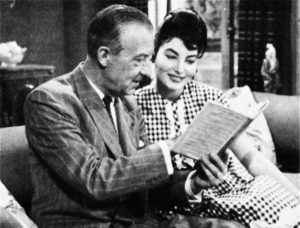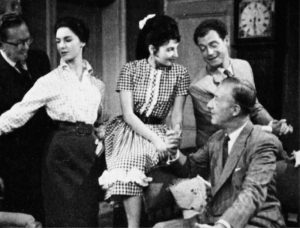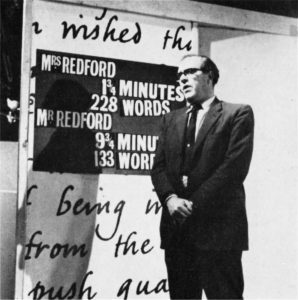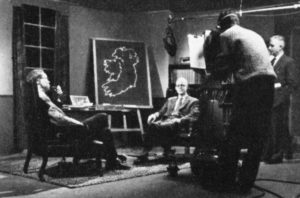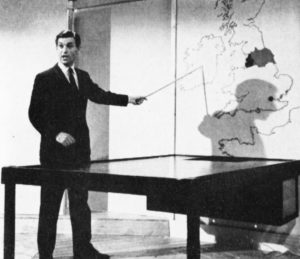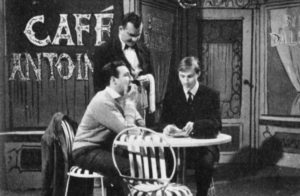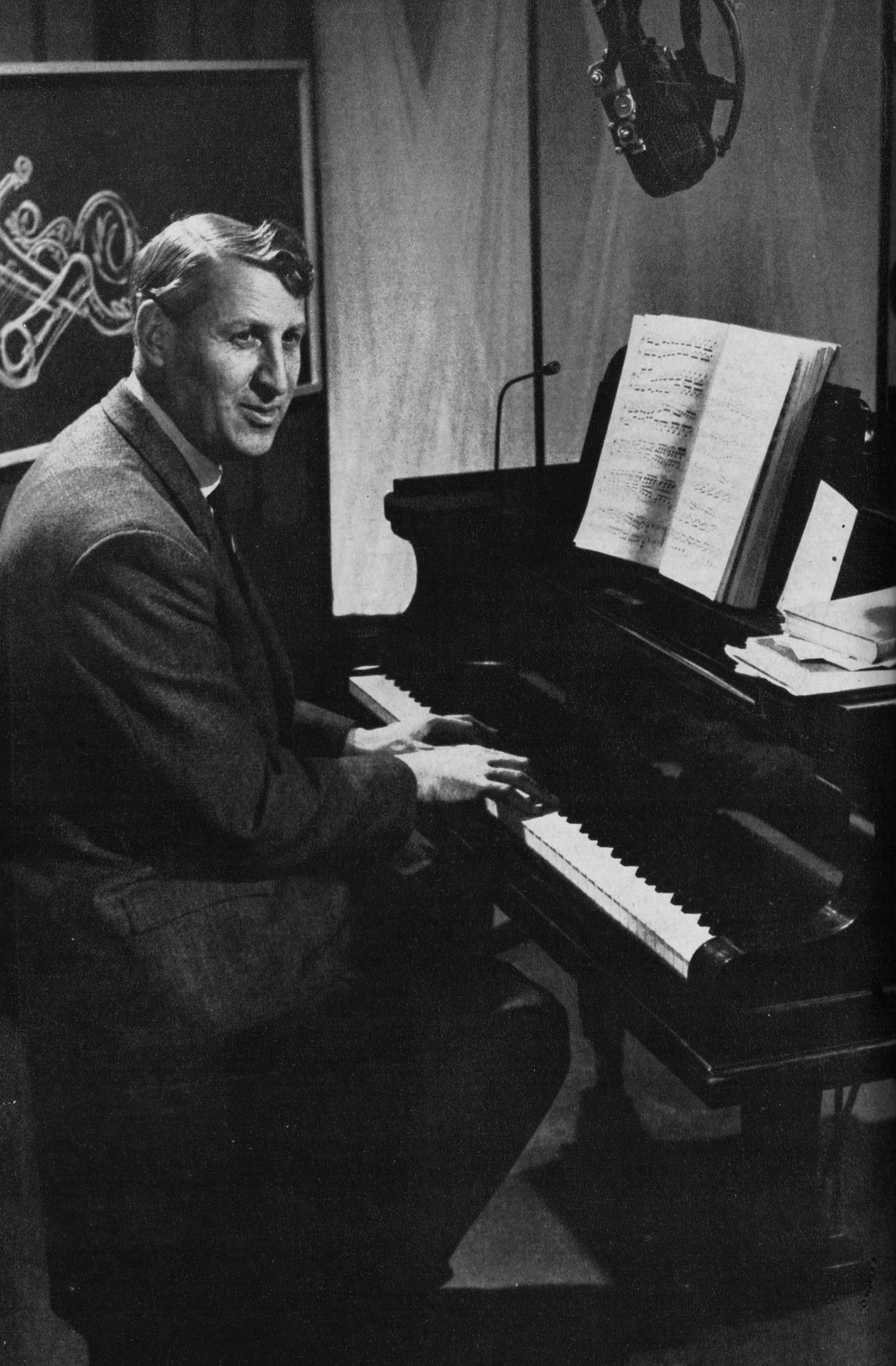
This year sees the beginning of the systematic use of television for adult education. The potentialities of the medium in this field continue to be widely discussed, but up to the present little has been done by way of practical exploration. The difficulty of defining adult education is one of the reasons why educationists in particular have in some cases been slow to take up the opportunities offered by television. It is argued that it is difficult to draw a firm line between what is strictly educational and what may be regarded as more generally “educative”. There has been a fear that if educational programmes are given a special place in the programme schedules this might have the result of reducing the attention and time devoted to the educative element in the general programmes. There has also been an element of nervousness that to term programmes as educational may deter from viewing the very people for whom the programmes are intended.
Yet adult education must proceed on the assumption that most people have interests and abilities which can be stimulated and developed. There is evidence to suggest that the strides made since the war in the provision of education for the population as a whole have led to a greatly increased familiarity with, and appreciation of, education in all its forms.
With this in mind, the Authority has consistently encouraged the programme companies to develop both the educative aspects of the general programme service and the provision of more specifically educational programmes. A substantial part of the output of Independent Television consists of programmes which in one way or another are informative or contain strong informative or educative elements. These programmes are described in other sections of the book. The limitation of the permitted hours of broadcasting, however, has stood in the way of the systematic use of television for more specialised adult education.
First Experiments
The restrictions on the hours of broadcasting inhibited developments for two years. Nonetheless, several companies experimented in different ways within the permitted output. In the winter of 1960-61, Associated-Rediffusion transmitted a French language series Chez les Dupré in the early evening and found an immediate and substantial response among viewers in the London area. It was followed by a similar series, Try Out Your French. In the summer of 1962, Ulster Television, in association with Queen’s University, Belfast, conducted a series of late-night lectures on medicine, science, literature, law, history, music and economics. Here again, the response of viewers was unexpectedly large and enthusiastic.
Time for Adult Education
The Committee on Broadcasting recommended that adult education programmes should be developed as part of the output of general programme services. As a result, the Government in their White Paper of July 1962 expressed anxieties that an early start should be made in providing more educational programmes for adults. It recognised that this was a comparatively new field and that the potential value to viewers was great. It therefore agreed to additional hours for both television services, provided these were used for programmes for the education of adults. The Authority and the BBC were asked to produce, in consultation with appropriate educational bodies, a formula by which such programmes could be defined. In the event, the following formula was agreed and approved by the Postmaster-General:
This definition shall be held to include programmes primarily designed for class use (e.g. in technical colleges or in centres for adult education) and also programmes primarily designed for the home viewer.
The New Programmes
In the meantime, encouraged by the terms of the White Paper, two other companies, ABC Television and Associated Television which had for some time been interested in the development of education programmes for adults particularly at weekends, began to put their plans into practical shape. At the end of 1962 they were able to submit first proposals for a group of programmes directed to home audiences and to be broadcast on Sunday mornings. The Postmaster-General agreed to the transmission of these programmes on an experimental basis and a series began in January of this year.
The Sunday morning adult education series consist of three groups of programmes of twenty minutes each, which are transmitted between 10 and 11 a.m. The first two are addressed mainly to young adults who may have left school at 15 and begun to realise a few years later the gaps in their basic equipment for self-expression. They are:
(2) Pen to Paper. A similar programme series on written English prepared by Mr. S. P. Corder, Lecturer in Contemporary Education at Leeds University.
The third series is intended for adults who learnt French at school but have never been able to put it to practical use and would now like to do so:
Following on this experimental series, the Authority hopes that during the session 1963-64 a more extensive and diverse set of courses may be transmitted. Various programme companies are at present formulating their proposals.
Adult Education Advisory Committee
In order to ensure the orderly and coordinated development of adult education programmes as well as to advise it about the application of the formula to proposals made by individual companies, the Authority has called together an Adult Education Advisory Committee under the chairmanship of Mr. J. S. Fulton, Vice-Chancellor of the University of Sussex.
The Committee is representative both of organisations concerned with liberal adult education and those concerned with further education and technical education. It is likely that there will be substantial developments in the latter field, although a number of problems remain to be solved. The transmission of programmes intended for in-college audiences is at the same time easier and more difficult than for home audiences. Easier because it is possible to define and to measure the audience more closely. More difficult because time-tabling problems, particularly in institutions of further education, make it difficult to schedule programmes at times suitable to a wide variety of institutions in different parts of the country.
If, as appears to be increasingly the case, television comes to be accepted as an important auxiliary instrument in the total national educational provision, it is likely that these difficulties will be overcome and that the next few years will see substantial developments in this field.

